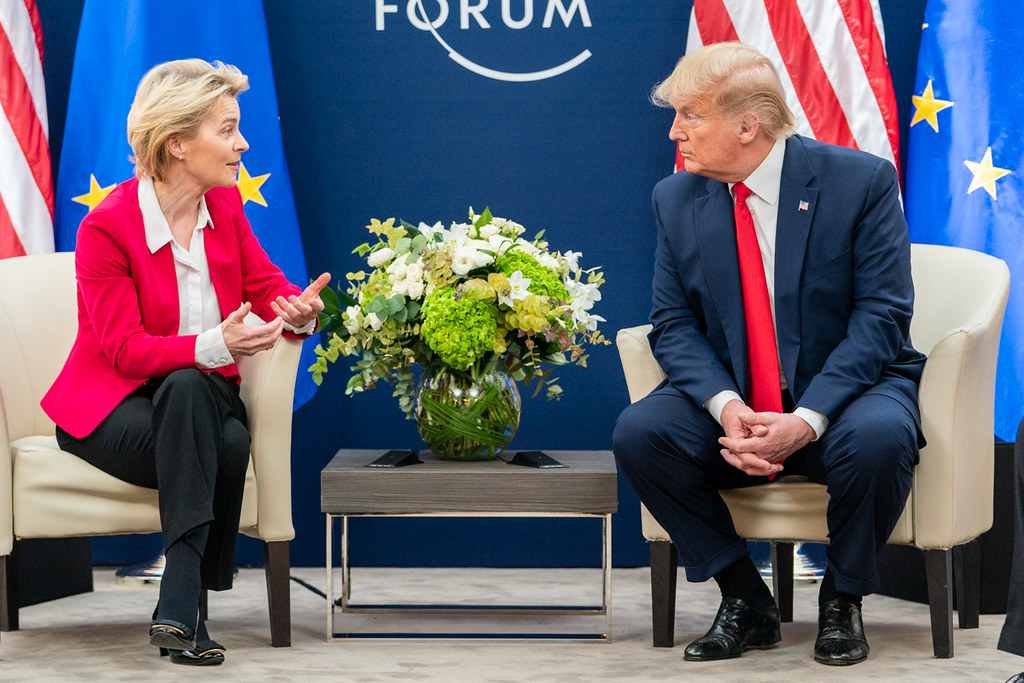
Reports that U.S. President Donald Trump asked the European Union to impose tariffs of up to 100% on China and India for purchasing Russian oil have stirred concern on both sides of the Atlantic. Analysts say Europe is unlikely to agree, given its delicate trade ties and ongoing energy challenges.
The Request and EU’s Response
According to reports confirmed by multiple sources, Trump raised the proposal in a meeting with senior U.S. and EU officials in Washington this week. The U.S. pledged to “mirror” any tariffs imposed by Europe on Beijing and New Delhi.
The European Commission declined to discuss specifics of the meeting but highlighted its ongoing work on a 19th sanctions package against Russia. It also stressed that the U.S. remains a key partner in enforcing sanctions.
The request comes as Washington negotiates a trade deal with India, making Trump’s proposal particularly sensitive. India has already criticized the U.S. for imposing a 50% tariff, including a 25% penalty tied to its Russian oil transactions, calling the move “unfair and unreasonable.”
Observers note that Europe, wary of alienating major trade partners, is unlikely to follow through with such measures.
Analysts Push Back
Experts say the EU prefers diplomacy over tariffs and has little appetite for entering another trade war. Ian Bremmer of Eurasia Group argued that Trump’s demand shifts responsibility onto Europe, giving the White House political cover while avoiding a direct clash with China.
Others, like London strategist Bill Blain, bluntly suggested that Europe should refuse, warning that tariffs risk destabilizing already fragile global trade dynamics.
Despite sanctions, the EU continues limited trade with Russia. In 2024, bilateral trade totaled €67.5 billion, with imports still dominated by fuel and mining products. While Europe has reduced its reliance on Russian pipeline gas from 40% in 2021 to under 12% in 2024, full disengagement remains elusive.
At the same time, the U.S. has encouraged Europe to replace Russian gas with American LNG, part of a wider energy trade framework that includes oil and nuclear products.
What The Author Thinks
Trump’s push for Europe to impose tariffs on China and India looks less like a coordinated sanctions strategy and more like political maneuvering. Forcing allies into a corner risks weakening trust at a time when transatlantic cooperation is crucial. Europe’s cautious stance is understandable — it cannot be expected to jeopardize its own trade stability to cover gaps in U.S. foreign policy.
Featured image credit: Trump White House Archived via Flickr
For more stories like it, click the +Follow button at the top of this page to follow us.
